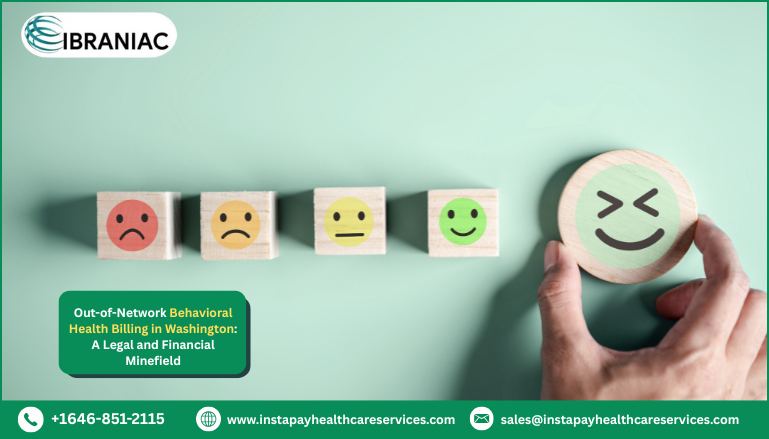
Out-of-Network Behavioral Health Billing in Washington: A Legal and Financial Minefield
Navigating out-of-network (OON) behavioral health billing in Washington is like walking a tightrope. Between balance billing restrictions, insurer pushback, and rising patient confusion, it’s easy for even experienced providers to get caught in costly legal or operational traps.
For any behavioral billing provider in Washington, understanding the state's evolving OON laws isn't optional—it's essential to staying compliant and financially stable.
The Balance Billing Protection Act: What It Means for You
Washington State implemented the Balance Billing Protection Act (BBPA) in 2020 to shield patients from surprise medical bills when receiving care from OON providers at in-network facilities. While it originally applied to emergency and certain hospital-based services, updates to the law—and its interaction with the federal No Surprises Act—mean behavioral health providers must tread carefully.
Under these regulations, you cannot bill a patient the balance between your charge and what the insurer reimburses if the service took place in a setting subject to the BBPA or if the patient didn’t knowingly consent to OON care.
Behavioral health is in a gray zone. While most outpatient mental health services aren’t directly affected by BBPA, some hybrid practices (e.g., those working in hospital outpatient departments or telehealth through hospital affiliations) may fall under its reach. Even for purely private practices, federal law now requires specific patient disclosures before providing OON care.
The Risks of Getting It Wrong
Failing to follow Washington’s OON rules can lead to:
- Refund demands from insurers or the state
- Hefty fines for unlawful balance billing
- Damaged patient trust and reputational loss
For example, billing a patient the full difference between your rate and the insurance payment—without proper disclosure and consent—can trigger a violation, especially if the patient assumed the visit was covered.
Best Practices for Out-of-Network Behavioral Billing in Washington
To avoid the legal and financial pitfalls, behavioral billing providers in Washington should follow these key practices:
1. Use a Clear, Legally-Compliant Disclosure Form
Before providing any OON service, use a Good Faith Estimate (GFE) and No Surprises Act-compliant disclosure form. It should clearly outline:
- That you're out-of-network
- What the estimated cost is
- Whether the patient has the right to receive in-network alternatives
2. Vet the Setting
If you’re offering behavioral health services in a hospital-affiliated clinic or via a hospital’s telehealth platform, consult legal counsel to determine if BBPA applies.
3. Review Contracts Regularly
Some Washington insurers like Regence or Molina have unusual requirements for partially-contracted networks. You might be out-of-network for mental health but in-network for medical services. Don’t assume—check.
4. Educate Your Front Desk
Make sure administrative staff clearly communicate network status and cost expectations before appointments. This prevents surprises and supports your compliance.
5. Partner with a Billing Expert
Out-of-network billing requires careful documentation, payer negotiation, and legal awareness. Working with a company like Instapay Healthcare Services ensures your claims are submitted properly and your practice stays protected.
Final Thoughts
OON behavioral billing in Washington isn’t just complex—it’s evolving. Between state-specific rules and national protections, behavioral billing providers in Washington must stay vigilant to avoid compliance missteps.
At Instapay Healthcare Services, we help behavioral health providers make sense of these regulations while optimizing reimbursement. If you're unsure about your OON billing process, it's time to get expert help—before it costs you.




